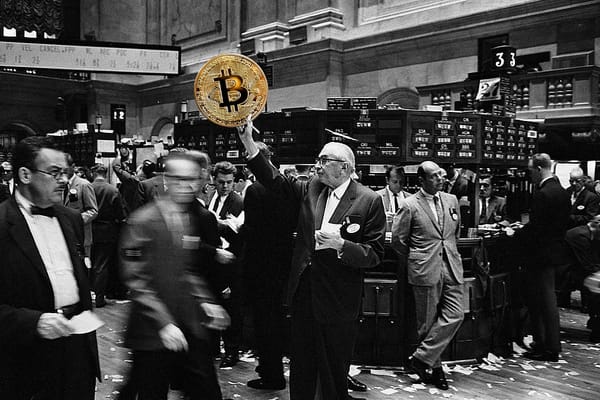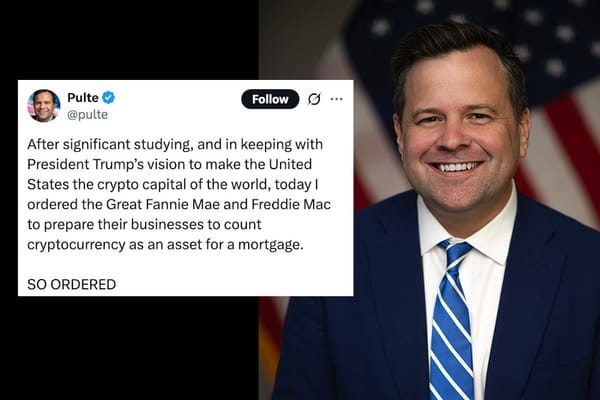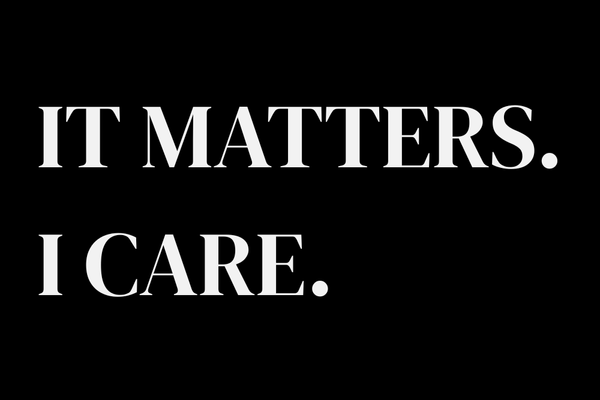We need to talk about digital ownership
"Ownership" means ten different things to ten different people. Let's talk about what we actually want.
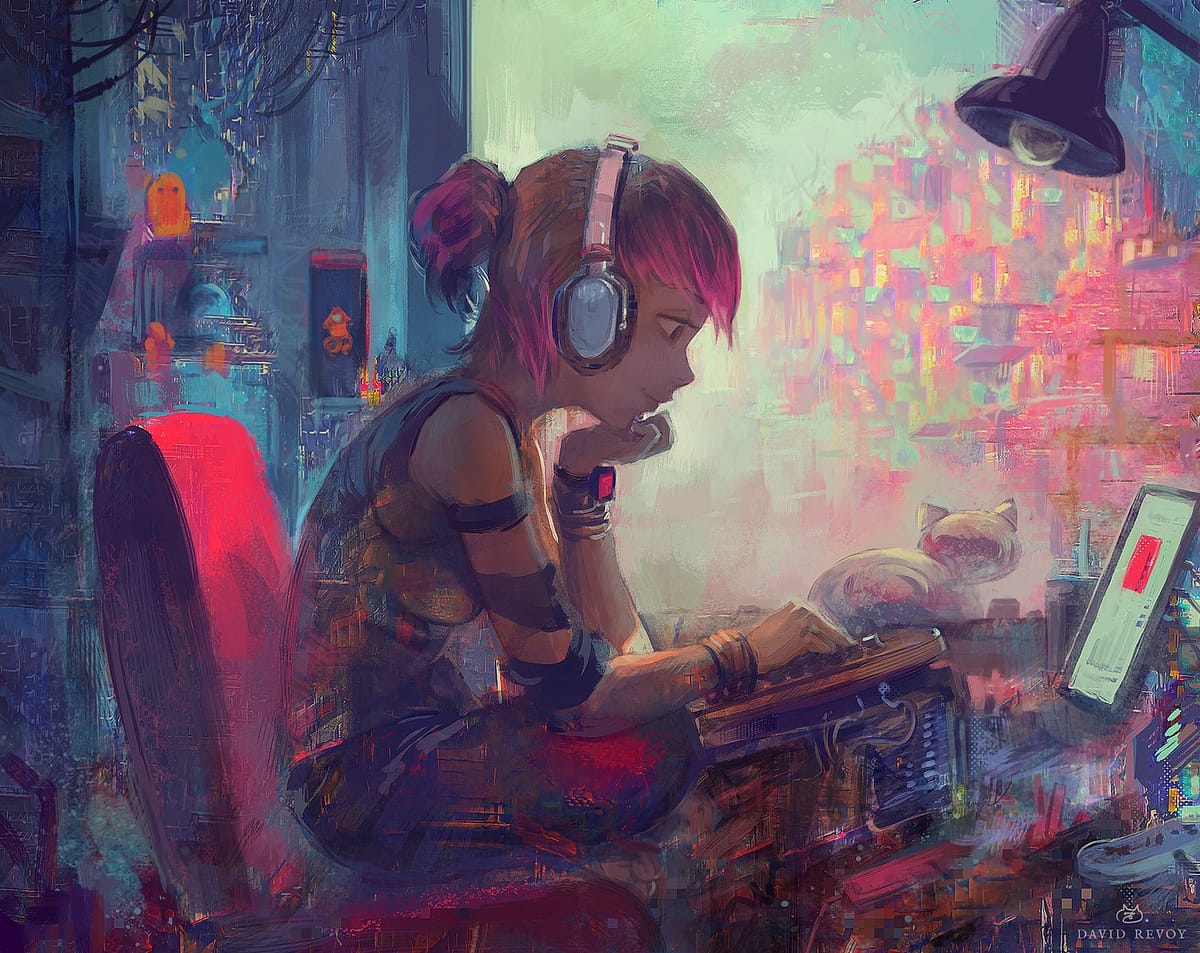
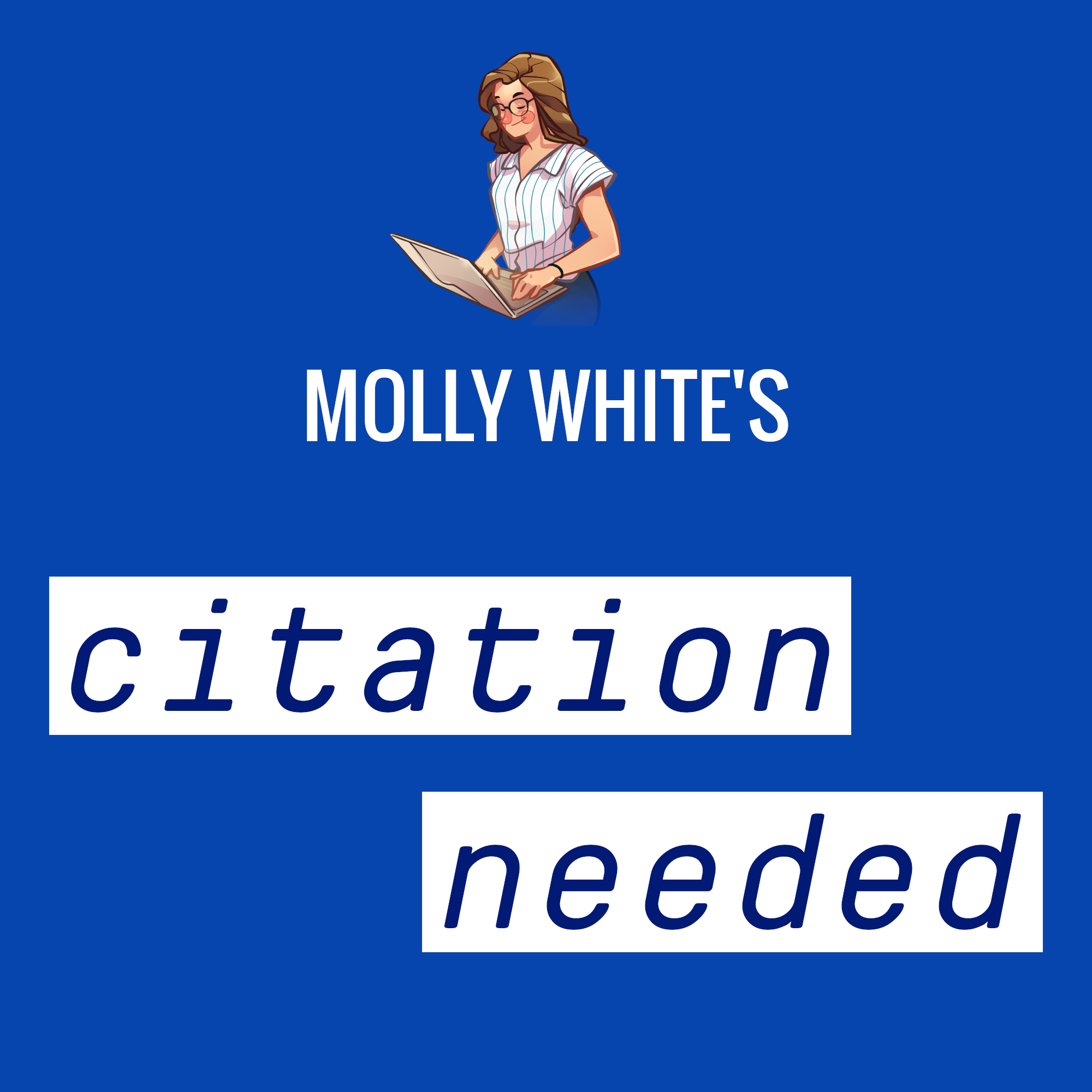
We need to talk about digital ownership.
You might have been told you should seek to "own your own data". That the future of the web itself is the prophesied "ownership era", which will follow the "read" and "write" eras we've experienced to date. That creators online need to "own their audiences" rather than remain beholden to Big Tech platforms.
But what is ownership online? What should it be?
In reality, people who talk about digital ownership are often talking about vastly different concepts, which muddies the waters. It would be helpful if instead they described precisely what rights they're trying to ensure.
Let's talk about a few types of ownership by specifically identifying the types of rights involved.
As a consumer
When you buy something online, what does that mean? If it's a physical item, that's more straightforward: you place an order, and the item is delivered to you. At that point, what you do with it is largely up to you. If it's a piece of artwork, maybe you hang it on the wall. If it's takeout dinner, you probably eat it. If it's clothes, you wear them. Maybe later on you decide you don't like the painting, so you donate it to a thrift shop. Maybe the clothes aren't quite your style, so you re-sell them through a consignment store.
But when you buy a digital item, what does that mean? It used to be that if you paid for a song, you'd get a file, which you could then download and play on your computer, email to a friend, transfer to your MP3 player, or burn to a CD. That "email to a friend" thing wasn't so popular with record companies, though, particularly when it happened on the much larger scale of online piracy. Some platforms implemented digital rights management (DRM), limiting what kinds of devices, or what software on those devices, or how many devices, could play the song.a Is it still ownership if you buy a song but you can't listen to it?
As the streaming model became popular, direct file downloads became more rare, and instead media was made available via online services: websites or apps that a buyer would open to enjoy the collection of media they'd purchased. Consumers, often without realizing it, now took the risk that their streaming service could go out of business (or get acquired), and the media they "owned" could disappear. Additional restrictions were placed on how they could access their media to limit mass sharing: only a set number of devices could log into the account, or media could only be played through one device at a time. Do you "own" a piece of media if it can disappear at any time? Or if you can only watch it sometimes, under certain conditions?
Some platforms, like Amazon, allow customers the option to rent or buy. Right now, I can go rent Back to the Future for about $3, which gives me a 30-day window to start watching, and 48 hours to finish the film once I've started it. Alternatively, I can purchase the film for $15. But, Amazon's terms and conditions disclaim that content I purchase "may become unavailable due to potential content provider licensing restrictions or for other reasons".1b Do I own this media, or am I just renting it indefinitely?c
Some people have largely stopped purchasing songs or albums individually, but instead pay to subscribe to a service like Spotify where they can access a vast library of media. They might listen to music all day long, but do they own any songs at all?d
With other types of digital media, ownership can be even more nebulous. A person might purchase a video game in an online library, which — as in the old days of purchasing a physical cartridge — generally gives them the right to play it whenever they want, as much as they want. But if it's an online game, which relies on servers controlled by the game's creator, the person who bought the game might not be able to play if the servers are at capacity, if a glitch takes them offline, or if the company decides to stop running the servers a few years down the road. The person might get banned from playing if they break the rules. They might get a different PC and discover their games are no longer playable on their new system. Is it ownership if the game you own intermittently can't be played, or eventually might be unplayable completely?
The topic of resale is also more complex. If you buy a movie as a physical DVD and then decide you're finished with it, it's perfectly legal to resell it as long as you don't make copies. If you buy a movie as a digital download or as an item in your online library, it's much more complicated, but resale is generally prohibited. Do you own something if you can't resell it?
For consumers, rights encompassed by ownership include ongoing access, availability, and resale rights.
Aspirationally
Does ongoing access matter? To some, at least for some types of media, it really doesn't. Even if they ostensibly "buy" rather than "rent" a movie or a book online, their mental model is more akin to renting: they expect to watch or read it in the near future, and don't really care if they can rewatch it or reread it in ten years.
For other types of media, particularly music, people tend to expect to more regularly enjoy what they've purchased. And there are plenty of people who love to rewatch and reread and replay all kinds of media many many times, for years and years — or those who at least care that they could do so if they wanted to. For them, if a platform they've used to purchase media suddenly shuts down and their purchases disappear along with it, they're often shocked and angry, because they viewed their purchase as ownership and not rental.
Does resale matter? When I buy a book or a song, I personally don't do so with the expectation I will turn a profit — or even recoup some of my money — by later selling it to someone else. But some people probably do, or at least care that they could.
There are also media that function more as collectibles, such as first-edition copies of comic books or rare signed copies of novels or albums. To purchasers of those items, resale matters very much. Online collectibles are a somewhat newer and less common phenomenon, thanks to challenges both around digital resale rights and digital scarcity. NFTs have been one attempt at creating digital collectibles that are (usually) resellable. Various implementations of NFTs introduce a whole other set of questions around ownership that I won't get into here for brevity's sake.
As a creator
What does ownership mean if you're the person making media? I use the term "media" very broadly here: I'm speaking about anything from career musicians writing and recording songs all the way to a random guy typing out and sending a tweet.
Generally speaking, people automatically own the copyright to the things they create: writing, music, songs, and even tweets and napkin scribbles of sufficient originality.
Various legal agreements can change this: a musician might sign over the rights to their recordings to their record label,e or an employee might create a work for hire as a part of their job. Then there are the licenses, which allow others to do things with your works under prescribed terms, without necessarily affecting copyright status. For example, there's the license that allows other people to reprint some of my blog posts without asking me for express permission,f or the license that allows Twitter to not only display your tweets on their website, but that would also let them use them in ads if they so pleased.2 Some agreements restrict what the author can do with their own work: for example, if I write a freelance article for a newspaper, a contract might restrict me from reposting that same writing in my newsletter. Do you own your work if you can't do with it whatever you like? Do you own your content if other people use it for other purposes, potentially including purposes you don't anticipate, aren't aware of, or don't like?g
There's also the question of whether a creator can sell what they've created, presuming they have an interested buyer. In most simple cases, people have the right to sell what they create. But there are limitations: if a creator reuses work by someone else, the license on that reused work may restrict my ability to sell my derivative work. Some software products place limitations on what creators can do with works created with that software. Do those creators own what they've created if they can't sell it?
Accessibility comes into play with digital ownership for creators, as well. If you sign up for a blogging platform, you might care very much about retaining access to the words you write there. You also may not think to download a copy of them. If that blogging platform disappears one day, and your work along with it, you might be pretty upset. Do creators own what they've created if they can no longer access it?
When people speak about content ownership online, they also often refer to portability. While you might retain the legal right to take everything you wrote on a platform and copy it somewhere else, not all platforms make it easy for you to do that. Some do. Do you own your work if you can't take it with you somewhere else? Or if it's very difficult to do so?
There's also the question of destructibility. When you write something on a piece of paper and make no copies, it's completely within your power to throw that paper into a shredder. When you type something in a document on your hard drive without uploading it anywhere, it's completely within your power to delete the document — hell, you can wipe the drive and smash it into tiny pieces if you want. Things get more complicated when you start sharing: if you take your piece of paper and distribute copies of it, you can't necessarily expect to be able to retrieve all those copies and destroy them.h If you publish your digital document online, you might be able to delete it later, but copies of it may persist in caches on computers that have accessed it, or in online archival projects like the Internet Archive's Wayback Machine. If I publish a newsletter, I can delete it from my website, but I can't remove it from each of your email inboxes. Legal agreements add to this: if I agree to publish something in the New York Times, I can't expect to be able to go to them and tell them to delete it from their website. Do you own something you created if you can't destroy it?
Then there's the topic of relationships. Although the concept of ownership feels weird to me to apply to relationships, there's a lot of talk online of things like "owning your audience" or "owning your mailing list". I like to call this sovereignty. That's because, in practice, "ownership" usually means that your relationship with your followers, subscribers, or customers is under your direct control. This was the model that recently allowed me to migrate away from Substack with relative ease:i because they structure their platform such that the subscriber pays the writer directly, with Substack taking a cut, it's fairly straightforward to swap out the Substack platform for a different one without interrupting ongoing subscriptions. This is in stark contrast to many online platforms, where subscribers pay the platform, and if the creator wants to leave, they have to start fresh. Does a creator own their work if they can take the material they've created with them, but they lose the audience they've worked to cultivate?
For creators, rights encompassed by ownership include copyright, licensing, sellability, accessibility, portability, destructibility, and sovereignty.
Aspirationally
There's wide variation in what creators want for their work, and how they conceive of that work.
For many people, and for many types of digital works, they don't really think of them as "works" and don't put that much thought into ownership. You dash off a tweet, you hit post, and you forget about it. You're never going to file a copyright complaint against someone who steals your joke, and you're never going to try to sell the tweet. But the calculus on that might change for other types of work — an artist who poured countless hours into a digital painting might want to sell it to someone who plans to use it for an album cover, or pursue legal action against someone who uses it as such without their permission.
Other people think being able to sell those dashed-off tweets is a great idea! Some in the crypto world have come up with schemes to sell individual tweets.j Some think it's unfair that companies like Twitter earn revenue from ad sales without distributing it to the people who write the stuff people put up with ads to see, and have come up with social media platforms that market themselves as paying their users to post (which also usually involve crypto).3 Others think these models are a terrible idea, serving only to encourage financial speculation and engagement farming.
For some digital works, creators want some rights, but not others. When I write a Wikipedia entry, I don't care if I can resell it, and I don't much care about limiting what other people can do with that writing. I certainly don't expect people to come ask me personally if they can reprint some words I wrote on Wikipedia ten years ago. On the other hand, when I write a newsletter, I'd be a little miffed if someone went and republished the whole thing in their magazine without my consent. There are lots of people out there who are totally fine with anyone freely viewing the work they publish online, but don't wish AI companies to train models that mimic that work.
Sovereignty is also a topic that is getting more attention these days, with no shortage of people condemning the lock-in by big social networks.k If a video creator establishes an audience of 1 million subscribers on YouTube, and then YouTube slashes the revenue they pay to creators, that person is left with few options. They can either just accept the new, lower rate that YouTube has decided they're worth paying, or they can move platforms and hope like hell their audience comes with them. The cost of switching is enormous. Inevitably, moving platforms that have this kind of lock-in results in major disruption for the creator and the audience alike, and it can threaten the creator's whole livelihood.
It's paramount that platforms allow their creators to up and leave, in my view, but this is not something that a lot of platforms willingly implement. Lock-in is great for business, and creator sovereignty means more competition among platforms. Some people refuse to use platforms with this kind of lock-in, but not enough to broadly convince platforms that sovereignty is a required feature. I suspect that legislation is the answer to restoring balance in this currently lopsided power relationship between most platforms and the people who use them. Some say that blockchains are the real solution to forcing sovereignty, as though it is somehow built in to the architecture, but in reality blockchain-based platforms can lock in their users just as easily as "web2" platforms.
"Own your own data"
"Own your own data" is a phrase that has become popular in recent years, despite its infuriating vaguity. Sometimes it's used in the sense I describe above: a person's ownership of digital works they produce, which are, fundamentally, data. Often, it's instead used to refer to ownership of data about people that they didn't themselves create. This is a vast category, but it includes things like data collected by advertisers (such as browsing habits) or infrastructure providers (such as cell phone call records or phone location data) or retail companies (such as shopping history). It even extends to things like medical records, financial data, and government records.
Sometimes this data is collected with full knowledge and consent of the subject. Most people understand that when they go to the doctor and the doctor takes notes during their visit, records are being created about them by that doctor. When they first become a patient, they're usually given forms to sign that explicitly describe how the doctor will and will not use and share that data.l
Sometimes data is collected without the subject's knowledge or consent. For example, when exploring the internet, many don't realize the extent to which their browsing activity is being tracked and stored by advertisers, sometimes without any disclosure whatsoever.m
Then there's the middle ground of data collection that someone could theoretically become aware of if they dug around in the depths of long, small-print privacy policies hidden in website footers, but are not proactively informed about.
Is data even something that can be "owned", like property? Are property rights even the right model to think about data? Perhaps "ownership" applies to some kinds of data, but not others: for example, aggregate anonymized data but not an individual's personal data? Or data about the myriad other things in this world that are not human beings?n
Does a subject have any "ownership" rights over data collected about them? Do they have rights to datasets that include data pertaining to them and many others? If so, what kinds of rights? Does the data collector have rights? What happens when these rights conflict?
When privacy advocates talk about "owning your own data" online, they often focus on rights like knowledge, consent, access, limitation of use, and destructibility. Laws like the European Union's General Data Protection Regulation (GDPR) and California's Consumer Privacy Act (CCPA) mandate that data collectors provide knowledge of what data is being collected and how it's being processed and shared, request consent for that collection, provide subjects with access to that data if they request it, limit how the collectors can reshare or sell that data, and destroy the data on request or after a set time period.
There are some limitations on this: for example, with respect to destructibility, the "right to be forgotten" or "right to erasure" can conflict with other rights like freedom of expression, at least when it comes to some kinds of people and some kinds of data. A public figure often can't lean on a law granting them the right to be forgotten to mandate that a news company take down a news article about them that they don't like, or to require search engines remove it from search results, but they still might be able to ask a company to, say, delete their private browsing data.
Others who talk about "owning your own data" sometimes have different rights in mind. As the topic of "web3" became more popular, I heard more and more people using the phrase "own your own data" to talk about the right of an individual to resell the data collected about them by third parties. Some have suggested "data dividends":4 payments by data collectors to the subjects of that data collection. Does an individual own their own data if they can't resell that data? Does an individual have the right to resell something created by someone else? If they do, does an individual's right to sell the data collected about them conflict with, or even eliminate, the data collector's right to sell that data?
For data, rights encompassed by ownership include knowledge, consent, access, limitation of use, destructibility, and sellability.
Aspirationally
"Own your own data" is one of the more complex topics to discuss aspirationally, because so many people have such different ideas of what that means, and what some people want can often be in very direct conflict with what other people want.
When it comes to knowledge, consent, and access, these are often fairly universally desired rights by the subjects of data collection, at least in theory. Conversely, the companies collecting this data would often really rather not provide those things — partly because people might be less willing to use their services if they understood the extent of the data collection, but also because implementing processes for people to consent to data collection or obtain copies of their data can be pricey. And in practice, the ways that these rights have been mandated have resulted in outcomes that subjects of data collection often find less than ideal, even if the goal of the legislation was admirable: think of those irritating and endless cookie consent popups on every website you visit, whose proliferation was largely spurred by legislation like the GDPR.
As for limitation of use and destructibility, we veer even further into rights that some subjects desire, but that data collectors would really rather not provide. The whole point of a data collector's business is often to sell the data they collect. Why would they want a subject of that collection to be able to limit what they can do with that data, including resell it? Destructibility is even more controversial, both in terms of conflicting with data collectors' interests but also in terms of the interests of the general public. For data collectors, it can be enormously expensive and sometimes challenging or even impossible from an engineering perspective to delete some data without compromising portions of the system. And for the public, there are often some types of data that we benefit from having publicly available, even if an individual person might object to its existence.
As for resale, many people would never even think about the right to resell data collected about them by somebody else; others view it as absolutely essential;5 and some think it's actually a pretty horrifying idea to treat personal data in this way.6
I hope that now, when you see a marketing pitch or proposed legislation that promises you "ownership" of digital content or data, you will push back. Ask that the people behind it instead explain to you very clearly what rights they are promising you, how they expect to enforce it, and why they think those rights are important.
It was easy to talk about different types of ownership in this post because they were boiled down to the rights involved, and not merely described by the vague umbrella term. Conversely, if I were to use the word "ownership", I might mean one thing, but every person listening to me thinks of something slightly different.
The answers to the questions that I posed about ownership are not simple or straightforward. But talking about them is made much easier if we talk about the rights involved, and not just vague "ownership".
Footnotes
Some platforms, like iTunes, charged a premium for DRM-free songs. ↩
I mention Amazon explicitly just to use a concrete example; these types of terms and conditions are bog-standard for digital purchases that are maintained in online collections, rather than provided as file downloads. ↩
There isn't a great direct analogue for a service where you paid for a piece of media and retained access to it for an indeterminate period of time before it maybe eventually disappeared, but to me, "rent" seems closer than "own". ↩
The answer to this one may well be "no". If my subscription music streaming service shut down tomorrow, I don't think I'd go "oh no, they took away all the songs I own." But then the question becomes: how different are streaming services from online libraries where you do purchase access to individual media? ↩
Many of my blog posts are licensed under the Creative Commons Attribution license, known more briefly as CC-BY, which allows other to share, adapt, or build upon my work — even commercially — so long as they attribute me. ↩
Looking at you, AI webscrapers. ↩
If you're wondering "why would anyone ever expect to be allowed to destroy things once they've been copied and distributed to others?", hold tight until the next section. ↩
I have many criticisms of Substack, but for this they have my admiration. ↩
These have typically taken the "tweets as collectibles" model,7 rather than selling, say, the right to reuse the text in the tweet. ↩
Lock-in is crucial to enshittification. If switching costs are high enough, platforms can get away with a lot of enshittification. Sovereignty is crucial to fighting enshittification, because the threat of their users going elsewhere can help to force platforms to treat them well. ↩
This is in part because medical records tend to be subject to particularly stringent data collection laws, requiring very explicit informed consent, such as HIPAA in the United States. ↩
Explicit requests that people consent to tracking and cookies are a somewhat newer phenomenon, and even then they generally urge people to click the "Accept all cookies" button without reading or understanding what data is being collected. ↩
I don't think most people would expect to be able to apply the same kinds of data privacy laws to data collected by, say, outdoor temperature sensors as they would to data collected about a person's shopping habits. ↩
References
Amazon Prime Video Terms of Use, Amazon. ↩
Terms of Service, Twitter. ↩
"California governor wants users to profit from online data", AP News. ↩
"You can now make money selling your own health data, but should you?", Fast Company. ↩
"Why Getting Paid for Your Data Is a Bad Deal", Electronic Frontier Foundation. ↩
For example, Valuables by Cent. ↩

